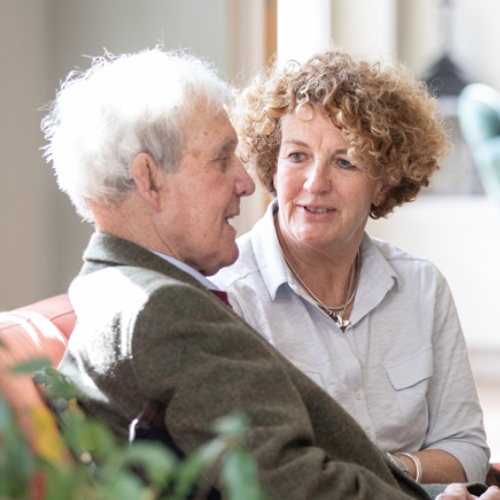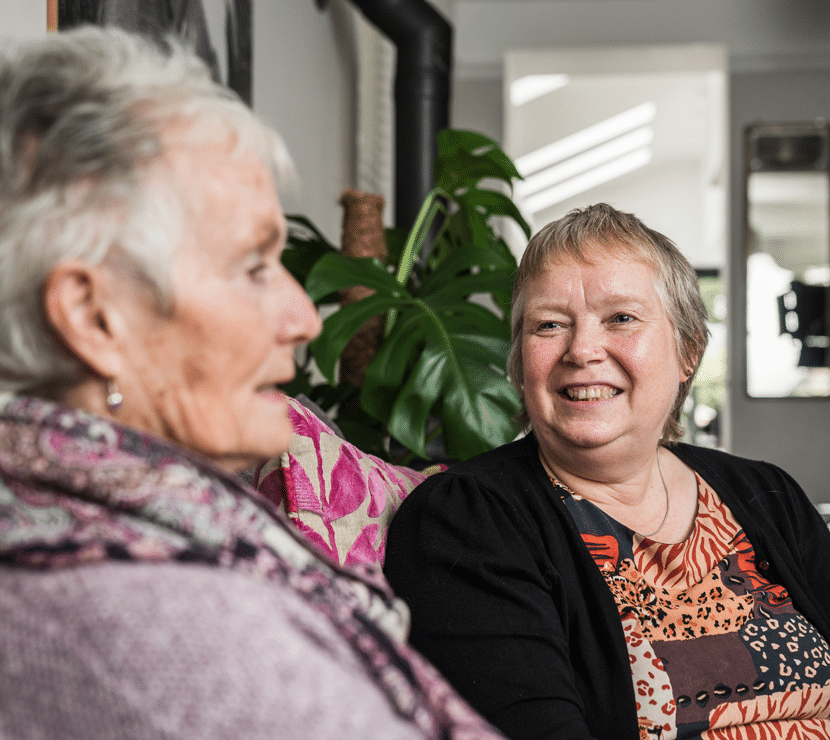It’s common to feel worried about a loved one as they get older, whether it’s a family member or a neighbour. You may be noticing signs that someone could use extra help with day-to-day tasks and are wondering how you can best support them.
It can be difficult to know when a loved one could benefit from extra support. Sometimes, your family members may ask for help or a sudden illness or injury may make it obvious that extra support is needed. However, if you live a distance away, you may need to be diligent to spot the signs that suggest your loved one could use further support.
It is also of the utmost importance to remember to not enforce the need for care upon someone if they are completely against it. The person in need should lead on which care provider they choose and when (as much as possible), so that they feel fully involved in the care that is being delivered to them.
This guide will provide insights on how to identify signs that indicate an older adult may need additional care or support. We have also provided valuable information on UK resources that can be contacted when you are worried about an elderly person.
Reasons why you might be concerned about an elderly person
Physical health concerns
As we age, our bodies start to slow down and we can become more susceptible to illnesses and injuries. Physical health changes can be a significant concern for older people. They can impact their ability to perform daily tasks independently, such as getting dressed, bathing, and preparing meals. Health concerns can also lead to pain and discomfort, which can negatively impact an older person’s quality of life.
If you have a family member who is experiencing physical health concerns, it’s important to offer support and encouragement to help them maintain their health and well-being. You can help by encouraging them to stay active, eat a healthy diet, and attend regular check-ups with their healthcare provider. It is worth remembering that although you may have concerns, they may be perfectly happy with living their life the way they do, so approach this gently and with sensitivity.
If you have immediate concerns about their physical health, it’s important to contact their GP or their local NHS service for advice and assistance.
Cognitive concerns
Another common concern for elderly people is age-related changes in cognitive function. Older adults may experience memory loss, difficulty concentrating and other cognitive difficulties.
This can present many challenges in a person’s life, making it difficult for them to complete daily tasks or communicate their needs and wants effectively. Cognitive concerns can also increase the risk of accidents and injuries, which can dramatically affect their quality of life.
If your loved one is experiencing cognitive challenges, it’s important to help them stay mentally engaged and active. You can help by engaging them in conversation, playing games, or doing puzzles together.
Make sure they regularly visit their GP to rule out any underlying causes for the symptoms they are experiencing such as dementia or Alzheimer’s.
Social isolation
Many older people experience social isolation, which can be a significant concern for their mental health and well-being. As we get older, we may lose friends and family members and our social networks may shrink. This can lead to feelings of loneliness, isolation, and anxiety. Social isolation can also make it challenging for an elderly person to access resources and support, such as transportation and health care.
Social isolation can be a serious concern and it’s important to help your loved one stay connected with others. Try encouraging them to join community groups or social activities. You may also consider arranging regular visits or phone calls with family and friends.
The NHS has a guide filled with valuable advice on helping older people overcome feelings of social isolation or loneliness.
Financial insecurity
Older people may be concerned about financial insecurity, especially if they are living on a fixed income. Rising healthcare costs, unexpected expenses, and changes in their financial situation can all contribute to financial stress and worry. Financial insecurity can impact an older person’s ability to access essential resources and support, such as food, housing, and health care.
If your loved one is experiencing financial insecurity, it’s important to help them explore their options and find solutions. You can help by assisting with budgeting or financial planning, or by connecting them with a financial advisor or elder law solicitor. Local council services can also offer assistance, such as advice on benefits or housing options.
Chronic illness
Chronic illnesses, such as diabetes, heart disease and arthritis are common among older people and can be a significant concern for their overall health and well-being. Chronic illnesses can impact an elderly person’s ability to live independently, manage their medications or access health care resources.
If your loved one is living with a chronic illness, it’s important to offer support and help them manage their symptoms. You can help by encouraging them to follow their prescribed treatment plan, stay active, and seek out support from health care providers or local support groups.
You may find the tips and advice useful in this guide from the NHS on long-term health conditions and mental well-being.
Mobility issues
Mobility issues, such as difficulty walking or using stairs, can be a significant concern for elderly people. Mobility challenges/concerns can impact a person’s ability to perform daily tasks, such as grocery shopping and housekeeping. They can also increase the risk of serious falls and injuries. Mobility issues can also impact a person’s ability to socialise and access resources and support.
There are a variety of resources available in the UK to provide mobility support. Disability Rights UK provides advice and support to disabled people, including information on mobility rights, accessibility and benefits.
When to consider extra care and support
If you are concerned about the well-being of an elderly loved one, extra support may be needed to ensure their safety and quality of life. At Oxford Aunts, we provide a fully regulated and managed live-in care service that can provide your loved one with the support and assistance they need in the comfort of their own home.
Our compassionate and professional carers are dedicated to meeting the unique needs and preferences of each individual client. We offer a range of personalised care services to ensure the highest quality of care possible is always being provided.
If you’re interested in learning more about our live-in care services, do not hesitate to contact us for a no-obligation assessment. We’re here to help you and your loved ones find the support and care you need to enhance your quality of life.
Further resources
Age UK – for older people, their families, friends and carers
Call 0800 678 1602
Helpline open: every day of the year, 8 am to 7 pm
Independent Age – for older people, including advice about care, money and health
Call 0808 503 7945
Helpline open: Monday to Friday, 8.30 am to 6.30 pm
Email: advice@independentage.org
The Silver Line – for older people
Call 0800 4 70 80 90
Helpline open: every day of the year, 24 hours a day
Citizens Advice – for advice about money and benefits
Call 0800 144 8848
Helpline open: Monday to Friday, 9 am to 5 pm
Citizens Advice will not charge you to call its national phone service or helpline, however, your service provider may do so.
Carers UK – help and advice for carers
Call 0800 808 7777
Helpline open: Monday to Friday, 9 am to 6 pm
Get in touch with us about your care needs
Our expert care advisors are here to help you understand the options available to you.





